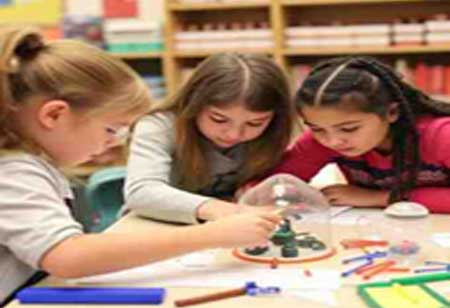THANK YOU FOR SUBSCRIBING
Be first to read the latest tech news, Industry Leader's Insights, and CIO interviews of medium and large enterprises exclusively from Education Technology Insights
The Pros and Cons of Educational Tourism
Educational tourism allows people to learn outside of traditional classroom settings, which promotes cultural awareness, personal development, and a larger perspective.

By
Education Technology Insights | Friday, October 04, 2024
Stay ahead of the industry with exclusive feature stories on the top companies, expert insights and the latest news delivered straight to your inbox. Subscribe today.
Educational tourism allows people to learn outside of traditional classroom settings, which promotes cultural awareness, personal development, and a larger perspective. The activities and experiences available vary considerably, allowing travelers to select selections relevant to their interests and learning goals.
Fremont, CA: Educational tourism, often referred to as edu-tourism or educational travel, is a type of tourism whose primary goal is to learn knowledge and engage in cultural interaction. It entails traveling to another country or region to learn about history, languages, art, and environmental challenges.
Education tourism involves more than just academic learning; it can include any activity or experience that broadens the traveler's perspective. The purpose is to discover new areas, cultivate personal growth, and widen one's perspective.
Pros of Educational Tourism
Broadening Cultural Experience
Educational tourism immerses visitors in various cultures, arts, history, and architecture. This exposure fosters a better knowledge and appreciation for diverse ways of living. Tourists enhance their perspectives by visiting historical sites, interacting with residents, and participating in cultural activities. Exploring unusual locations and learning foreign languages both contribute to culturally enriching experiences.
Enhancing Education and Teaching
Individuals can improve their knowledge and skills by studying various subjects from specialists during educational travel. Hands-on experiences in history, art, and architecture make learning more exciting and memorable. As a result, such occurrences frequently spark a lifetime love of learning and a stronger appreciation for various subjects. Furthermore, educators can return with valuable ideas, resources, and instructional strategies to enrich their classrooms and contribute to better teaching practices.
Boost Employment and Business
Educational tourism generates demand for highly skilled tourism personnel, creating new job opportunities for local guides, translators, and educators. Furthermore, the rush of visitors helps to fuel the growth of local businesses, like hotels, restaurants, and entertainment facilities. By encouraging cultural exchange and economic development, education tourism helps to provide the groundwork for long-term progress in the international community.
Cons of Educational Tourism
Impact on Local Cultures
Educational tourism allows people to learn about different cultures and societies but may also significantly impact these communities. Overtourism can lead to commodifying cultural experiences, with natives feeling compelled to change their traditions and rituals to accommodate tourists. This can result in losing valuable cultural assets, a reduction in authenticity, and socio-cultural difficulties between visitors and locals.
Furthermore, tourists' desire to learn about foreign cultures occasionally leads to intrusive behavior. The drive to investigate and comprehend might result in invasions of privacy or transgressions of personal boundaries, causing dissatisfaction in the local community.
Environmental and Social Issues
Another issue with educational tourism is its ecological footprint. Tourists visiting isolated destinations frequently cause environmental problems such as pollution, littering, and deterioration of natural resources. These acts can potentially harm the ecosystems that local communities rely on for survival.
Furthermore, educational tourism might worsen socioeconomic inequality. Wealthier tourists can devour resources, raise living costs, and drive up housing prices in popular areas, making it increasingly difficult for residents to buy necessities.







